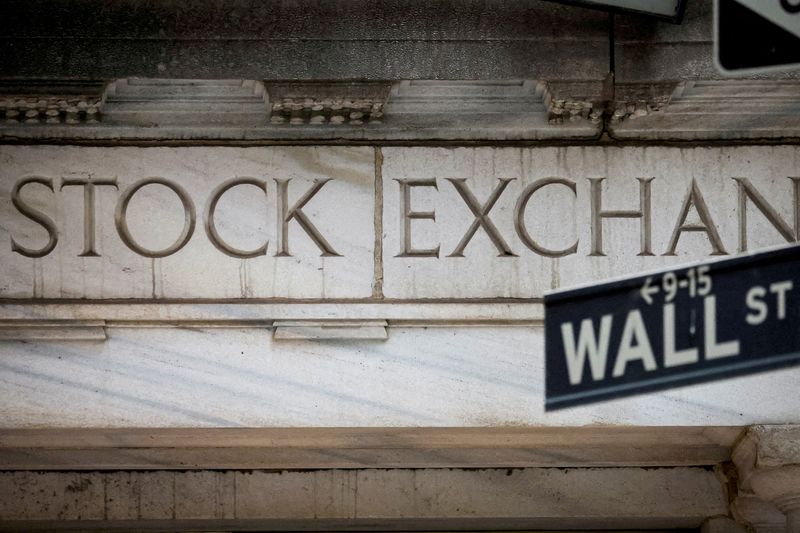By Herbert Lash
NEW YORK (Reuters) -Stocks on Wall Street rallied and the dollar rose on Friday, as bond prices fell, after another blowout U.S. jobs report suggested the Federal Reserve may delay cutting interest rates while it awaits further inflation data.
Gold prices hit record highs and the Mexican peso, which tends to benefit from strong U.S. consumer demand, appreciated the most since late 2015.
U.S. employers hired far more workers than expected in March and raised wages at a steady clip, the Labor Department said.
Anthony Saglimbene, chief market strategist at Ameriprise Financial in Troy, Michigan, said investors are reassessing whether the Fed cuts rates three times in 2024.
"It might be two, it's too early to tell," he said. "If the economy is running the way it's running now through most of this year, then it might be likely that the Fed does not cut interest rates this year."
Expectations of rate cuts as soon as June declined along with the view for the size of rate cuts this year.
Data showing a cooling U.S. services sector and comments this week from Fed Chair Jerome Powell had reinforced the view that rate cuts were likely to commence in 2024. But on Thursday, Minneapolis Fed President Neel Kashkari said rate cuts might not be required this year.
The year-over-year change in the average hourly earnings cooled and will restore confidence that wage increases are normalizing, said Dec Mullarkey, managing director of investment strategy and asset allocation at SLC Management in Boston.
"Right now, this gives the Fed more reason to stay patient and slightly changes the odds of rate cuts this year from three to two," he said.
Small business surveys show demand for workers is headed lower and wages are just above the run rate of the Fed's 2% inflation target, said Roosevelt Bowman, senior investment strategist at Bernstein Private Wealth Management in New York.
"The hiring intentions and muted wage growth is encouraging for the Fed and saying, 'Hey, we're adding jobs without necessarily adding inflationary pressures'."
Next week's consumer price index (CPI), which is expected to show core inflation slowing to 3.7% in March from 3.8% the prior month, is likely to shape near-term Fed policy.
MSCI's gauge of global stock performance closed up 0.4%, weighed down by losses in Europe where the pan-regional STOXX 600 index fell 0.84%. But Wall Street rallied, with the Dow Jones Industrial Average up 0.77%, the S&P 500 0.96% and the Nasdaq Composite 1.09%.
The yield on benchmark 10-year Treasury notes rose 7.5 basis points to 4.384%. Bond yields move inversely to their price. {{2126|The dodollar index, a measure of the U.S. currency against six major peers, edged up 0.07%.
Spot gold hit a record high of $2,330.06 an ounce, with U.S. gold futures settling 1.6% higher to $2,345.4.
Oil prices rose, on course for a second weekly gain, supported by geopolitical tensions in the Middle East, concerns over tightening supply and expectations about demand growth.
Crude oil settled at its highest levels since October. U.S. crude futures rose 32 cents to $86.91 a barrel, while Brent settled up 52 cents at $91.17 a barrel.
Earlier in Asia, MSCI's broadest index of Asia-Pacific shares outside Japan fell 0.45%.
A holiday in China also made for thinner trade.

Tokyo's Nikkei fell 2%, pressured in part by a stronger yen, thanks to the prospect of further rate hikes there and more jawboning from Japanese officials. (T)
Hong Kong's Hang Seng Index was little changed.
